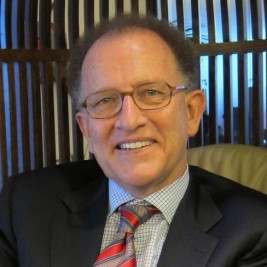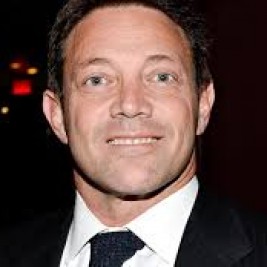

Corporate Appearances, Speaking Engagements, Autograph Signings, Endorsements, VIP Meet & Greets, Store Grand Openings
Book Ken Burns for a Speaking Engagement
Businesses, Non-profit organizations, event planners and companies across the country have worked closely with our booking agents to hire Ken Burns for a speaking engagements, guest appearances, product endorsements and corporate events. Many of those same clients have continued to turn to our speakers bureau as we can easily align Ken Burns’s availability with their upcoming seminar, gala, annual conference, corporate function, and grand opening. Our close relationship with Ken Burns’s booking agent and management team further enables us to provide inquiring clients with Ken Burns’s speaking fee and appearance cost.
If your goal is to hire Ken Burns to be your next keynote speaker or to be the next brand ambassador our celebrity speakers bureau can assist. If Ken Burns’s booking fee is outside your companies budget or your unable to align with his appearance availability, our booking agents can provide you a list of talent that aligns with your event theme, budget and event date.
Ken Burns has been making films for more than 30 years. Since the Academy Award nominated Brooklyn Bridge in 1981, Burns has gone on to direct and produce some of the most acclaimed historical documentaries ever made. A December 2002 poll conducted by Real Screen magazine listed The Civil War as second only to Robert Flaherty’s Nanook of the North as the “most influential documentary of all time,” and named Burns and Robert Flaherty as the “most influential documentary makers” of all time. In March of 2009, David Zurawik of The Baltimore Sun said, “… Burns is not only the greatest documentarian of the day, but also the most influential filmmaker period. That includes feature filmmakers like George Lucas and Steven Spielberg. I say that because Burns not only turned millions of persons onto history with his films, he showed us a new way of looking at our collective past and ourselves.” The late historian Stephen Ambrose said of his films, “More Americans get their history from Ken Burns than any other source.” Burns’ films have won 12 “Emmy Awards” and two Oscar nominations, and in September of 2008, at the News & Documentary Emmy Awards, Burns was honored by the Academy of Television Arts & Sciences with a “Lifetime Achievement Award”.
Burns has been the recipient of more than 25 honorary degrees and has delivered many treasured commencement addresses. He is a sought after public speaker, appearing at colleges, civic organizations and business groups throughout the country.
Projects currently in production include The Roosevelts: An Intimate History, a seven-episode series scheduled for broadcast in the fall of 2014, as well as films on Jackie Robinson, the Vietnam War and the history of country music.
In April 2013, PBS broadcast The Central Park Five, a two-hour film about the five black and Hispanic teenagers wrongly convicted of the 1989 Central Park Jogger rape. The film paints a revealing portrait of one of our nation’s most egregious miscarriages of justice. The Central Park Five played at the Cannes, Telluride, Toronto, London, Vienna and DOC NYC film festivals, among others. It opened in theaters nationwide in November 2012, and was named by MovieMaker magazine as one of the top 10 films of the year. Other honors include the New York Film Critics Circle 2012 “Best Non-Fiction Film” award.
In November 2012, PBS broadcast The Dust Bowl, a two-part series about the worst man-made ecological disaster in American history, in which the frenzied wheat boom of the “Great Plow-Up,” followed by a decade-long drought during the 1930s nearly swept away the breadbasket of the nation. Vivid interviews with 26 survivors of those hard times, combined with dramatic photographs and seldom seen movie footage, bring to life stories of incredible human suffering and equally incredible human perseverance. It is also a morality tale about our relationship to the land that sustains us—a lesson we ignore at our peril.
In October of 2011, PBS broadcast Prohibition, a three-part, five and a half hour series directed by Burns and Lynn Novick. The film tells the story of the rise, rule and fall of the Eighteenth Amendment to the U.S. Constitution and the entire era it encompassed, a compelling saga that goes far beyond the oft-told tales of gangsters, rum runners, flappers and speakeasies, revealing a complicated and divided nation in the throes of momentous transformation. Prohibition raises vital questions that are as relevant today as they were 100 years ago—about means and ends, individual rights and responsibilities, the proper role of government, and, finally, who is—and who is not—a real American.
An update to the 1994 epic Baseball, The Tenth Inning was co-directed by Burns and Novick. David McMahon, Novick and Burns wrote and produced the film, which aired on PBS in September 2010. This two-part, four-hour documentary highlights the many dramatic developments that transformed the game: the crippling 1994 strike, the increasing dominance of Latin and Asian players; the rise of a new Yankee Dynasty, the historic World Series victory by the Red Sox, and the revelations about performance-enhancing drugs, a reality that cast a pall on some of the greatest stars of the game.
In the fall of 2009, PBS broadcast The National Parks: America’s Best Idea. Directed and co-produced by Burns, it was co-produced by his long-time collaborator Dayton Duncan. The six-part series focuses on the ideas and individuals that helped propel the parks into existence. Filmed over the course of more than six years at some of nature’s most spectacular locales—from Acadia to Yosemite, Yellowstone to the Grand Canyon, the Everglades of Florida to the Gates of the Arctic in Alaska—the heart of the story is nonetheless a story of people from every conceivable background—rich and poor; famous and unknown; soldiers and scientists; natives and newcomers; idealists, artists and entrepreneurs; people who were willing to devote themselves to saving some precious portion of the land they loved, and in doing so reminded their fellow citizens of the full meaning of democracy. The film won Emmy Awards for “Outstanding Nonfiction Series” and “Outstanding Writing for Nonfiction Programming”, as well as the 2010 CINE “Golden Eagle Award”.
In September 2007, PBS broadcast The War, which Burns co-produced and co-directed with long-time colleague, Novick. This seven-part film tells the story of the Second World War through the personal accounts of nearly 40 men and women from four quintessentially American towns. The series explores the most intimate human dimensions of the greatest cataclysm in history—a worldwide catastrophe that touched the lives of every family on every street in every town in America. The War was named an official selection at the 2007 Cannes Film Festival and won three Primetime Emmy Awards: “Outstanding Writing for Nonfiction Programming”, “Outstanding Sound Editing for Nonfiction Programming”, and “Outstanding Voice-over Performance” (for narrator Keith David). Robert Bianco of USA Today said, “There are works of TV art so extraordinary all you can do is be grateful. With The War, gratitude abounds.” Keith Olbermann of NBC/MSNBC said, “This is the finest documentary series of the last decade… if not more,” and Adam Buckman of the New York Post has said “I have spent the better part of my adult life watching TV for a living, and I have never experienced anything more powerful than this.”
In January of 2005, Unforgivable Blackness: The Rise and Fall of Jack Johnson, a two-part film on the life of the first African-American heavyweight boxing champion, aired on PBS. It was produced with Burns’ long-time collaborator and editor Paul Barnes, and had its premiere at the 2004 Telluride Film Festival. This film won three Primetime Emmy Awards: “Outstanding Nonfiction Special”, “Outstanding Writing for Nonfiction”, and “Outstanding Voice-over Performance” (for narrator Keith David). Todd McCarthy of Variety called it “...irresistibly engrossing... masterly... a knockout...”; while The New York Times described it as “monumental... gripping.” Ring Magazine, “the bible of boxing,” said Unforgivable Blackness is “...the most wildly entertaining documentary ever.”
Horatio’s Drive: America’s First Road Trip, an account of the first cross-country trip by automobile, was co-produced with Burns' long-time colleague Duncan. This film aired on PBS in October of 2003, and was screened that same year at the Telluride Film Festival. The film earned the 2003 CINE Golden Eagle Award and, in 2004, the Christopher Award. David Bianculli of the New York Daily News said, “This is one drive on which no passenger will be asking impatiently, ‘Are we there yet?’ The journey, in this case, is the destination.” Mark Sachs of the Los Angeles Times wrote, “The detail work by Burns and Duncan offers such an authentic-feeling trip back in time that it’s as if viewers have a backseat perch as Jackson puts his cherry-red Winton touring car in gear and heads east.”
Mark Twain, a two-part, four-hour portrait of America's funniest and most popular writer, was also co-produced with Duncan. Winner of the “Leon Award for Best Documentary” at the St. Louis Film Festival in 2001, the film aired on PBS in January 2002. Burns Ringle of The Washington Post wrote, “Mark Twain is not only fascinating, funny, inspiring and wise, it’s one of the best primers on American literature and culture you could have.”
In January 2001, Jazz, the third in Burns’ trilogy of epic documentaries, which began with The Civil War and continued with Baseball, was broadcast on PBS. Co-produced with Novick, this 19-hour, ten-part film explores in detail the culture, politics and dreams that gave birth to jazz music, and follows this most American of art forms from its origins in blues and ragtime through swing, bebop and fusion. Jack Newfield of the New York Post said, “Jazz is the best American documentary film I have ever seen. Period.” Tom Brokaw wrote, “Jazz is a masterpiece of American television.” John Carmen of the San Francisco Chronicle wrote, “Jazz informs, astonishes, and entertains. It invites joy, tears, toe-tapping, pride, and shame and maybe an occasional goose bump.”
Not For Ourselves Alone: The Story of Elizabeth Cady Stanton and Susan B. Anthony, winner of the prestigious “Peabody Award” and an “Emmy Award”, was co-produced with Paul Barnes and aired on PBS in November of 1999. This dual biography tells the story of the two women who almost single-handedly created and spearheaded the women’s rights movement in America, changing for the better the lives of a majority of American citizens. As Bob Herbert of The New York Times stated: “The latest splendid effort from...Ken Burns is about two women who barely register in the consciousness of late-20th century America, but whose lives were critically important to the freedoms most of us take for granted.” The 2000 Peabody Award citation for NFOA reads: “Remarkable...It is an inspiring story of hopes, dashed dreams and dogged determination... NFOA...brings heart, soul and considerable poignancy to the stories of these two leaders of the women’s suffrage movement.”
Frank Lloyd Wright, co-directed and produced with Novick, premiered at the Sundance Film Festival in January 1998, and aired on PBS in November of that year. The film, which tells the riveting story of America's foremost architectural genius, is, according to Janet Maslin of The New York Times, a “towering two-and-one-half-hour(s)...sure to have a high profile because of the turbulent, colorful life of the architect and the austere magnificence of his work, which is thoughtfully assessed.” Burnsneth Turan of the Los Angeles Times says the film “...has the unbeatable combination of exceptional interview material and beautiful architectural photography put at the service of an astonishing life.” In 1999, it won the “Peabody Award”.
In November 1997, Lewis and Clark: The Journey of the Corps of Discovery was released to critical acclaim and garnered the second-highest ratings in public television history. This four-hour film, co-produced with Duncan, chronicles the corps’ journey westward on the first official expedition into uncharted spaces in United States history. Tony Scott of Weekly Variety called the film “...a visually stunning account...Striking photography, superb editing, informative reportage and little-known anecdotes characterize the latest fine documentary work from Burns,” and Don Heckman of the Los Angeles Times wrote, “...superb...a vast landscape that, even on the television screen, underscores the sense of awe reported by Lewis and Clark in their journals.”
Thomas Jefferson, a three-hour portrait of our third president, aired in February of 1997. This film explores the contradictions in the man who was revered as the author of the most sacred document in American history and condemned as a lifelong owner of slaves. Walter Goodman of The New York Times said: “...Thomas Jefferson is a considerable accomplishment, a thoughtful and affecting portrait of the intellectual who captured the essence of a new nation’s hopes in phrases that continue to resound around the world.” And George Will, in The Washington Post, said: “...Ken Burns presents a timely corrective, a visually sumptuous and intellectually judicious appraisal of Jefferson.”
In the fall of 1996, The West, an eight-part, 12 1/2 hour film series on the American west was released. The West is the story of one of the great crossroads in human history, a place where, tragically and heroically, the best of us met the worst of us and nothing was left unchanged. Burns was executive producer and creative consultant for this highly praised series, directed by Stephen Ives, which won the 1997 “Erik Barnouw Prize”.
Burns was the director, producer, co-writer, chief cinematographer, music director and executive producer of the public television series Baseball. Four and a half years in the making and 18 and a half hours in length, this film covers the history of baseball from the 1840s to the present. Through the extensive use of archival photographs and newsreel footage, baseball as a mirror of our larger society was brought to the screen over nine nights during its premiere in September 1994. It became the most watched series in PBS history, attracting more than 45 million viewers. David Bianculli of the New York Daily News said, “[Baseball]...resonates like a Mozart symphony.” Richard Zoglin of TIME magazine wrote, “Baseball is rich in drama, irresistible as nostalgia, and...an instructive window into our national psychology.” Baseball received numerous awards, including an “Emmy”, the CINE “Golden Eagle Award”, the “Clarion Award”, and the Television Critics “Awards for Outstanding Achievement in Sports and Special Programming”.
Burns was also the director, producer, co-writer, chief cinematographer, music director and executive producer of the landmark television series The Civil War. This film was the highest rated series in the history of American Public Television and attracted an audience of 40 million during its premiere in September 1990. The New York Times called it a masterpiece and said that Burns “takes his place as the most accomplished documentary filmmaker of his generation.” Tom Shales of The Washington Post said, “This is not just good television, nor even just great television. This is heroic television.” The columnist George Will said, “If better use has ever been made of television, I have not seen it and do not expect to see better until Ken Burns turns his prodigious talents to his next project.” The series has been honored with more than forty major film and television awards, including two “Emmy Awards”, two “Grammy Awards”, “Producer of the Year Award” from the Producer’s Guild, “People's Choice Award”, “Peabody Award”, “DuPont-Columbia Award”, “D.W. Griffiths Award”, and the $50,000 “Lincoln Prize”, among dozens of others.
In 1981, Burns produced and directed his first film for PBS, the Academy Award nominated Brooklyn Bridge. During the 1980s he made several other award-winning films, including The Shakers; Statue of Liberty, also nominated for an Oscar; Huey Long, the story of the turbulent southern dictator, which enjoyed a rare theatrical release; The Congress; Thomas Hart Benton, a portrait of the regionalist artist; and Empire of the Air: The Men Who Made Radio. Burns has also produced and directed three films—William Segal, Vézelay, and In The Marketplace—which explore the questions of seeing, searching and being through the work and teachings of philosopher and painter William Segal.
Burns was born in Brooklyn, New York. He graduated from Hampshire College in Amherst, Massachusetts in 1975 and went on to be one of the co-founders of Florentine Films.

Let our team of booking agents help create a memorable experience with hiring Ken Burns for your store grand opening, golf outing, trade show booth or corporate outing.
NOPACTalent acts as a Celebrity Speakers Bureau and Athlete Booking agency for corporate functions, appearances, private events and speaking engagements. NOPACTalent does not claim or represent itself as Ken Burns’s speakers bureau, agent, manager or management company for Ken Burns or any celebrity on this website. NOPACTalent represents organizations seeking to hire motivational speakers, athletes, celebrities and entertainers for private corporate events, celebrity endorsements, personal appearances, and speaking engagements.











